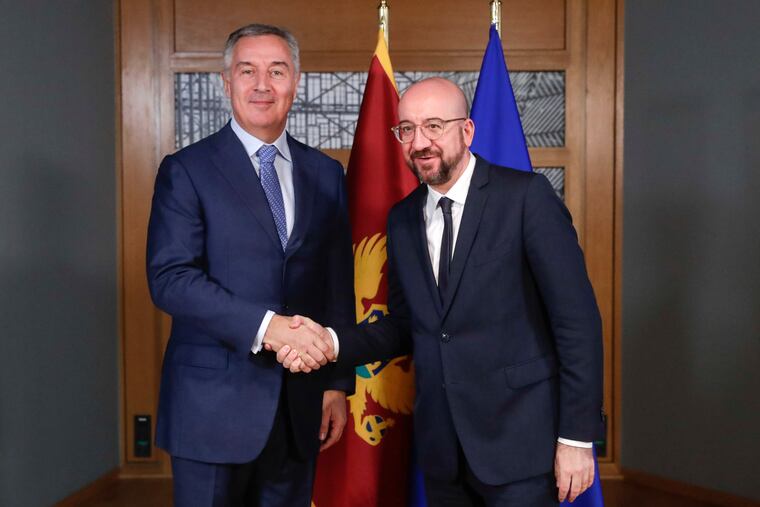European Union post-Brexit budget proposal under attack from many sides
The European Union is in for a bruising week when it comes to the next 7-year budget.

BRUSSELS — Several EU member states and the European Parliament have rejected for starkly opposing reasons the latest proposal to find a compromise on the European Union’s budget, setting up a major fight at a summit later this week.
In the wake of the latest proposals from EU summit host Charles Michel, the so-called Frugal Four nations of the Netherlands, Austria, Denmark and Sweden said in a joint statement they refuse to back the target sought by Michel, arguing that with the U.K.'s departure, “we simply have to cut our coat according to our cloth.”
The four mid-sized nations wrote in a joint op-ed piece in the Financial Times Monday that currently “the financial burden of the union is increasingly being put on the shoulders of a small number of member states, including ours."
The European Parliament at the same time has been scathing in dismissing Michel's proposal as insufficient to meet the challenges of today, including climate change and geopolitical challenges. They stuck to their position on Monday.
Only the EU Commission had kind words for Michel's latest proposal. “We believe that it is a good starting point," said EU Commission spokesman Eric Mamer, saying that it already slightly increased the spending levels compared with the previous offer. “It is obvious that these negotiations are always very tricky."
Europe’s coffers will shrink with Britain having left the bloc at the end of January. But the EU institutions have also set ambitious spending targets on climate, the digital economy and research.
Michel’s offer falls some 240 billion euros ($260 billion) short of the demands of the European Parliament, which wants a budget of 1.3% of gross national income. The Frugal Four want to go as low as 1%.
The EU’s powerful executive arm, the European Commission, has proposed that countries should contribute 1.11% of gross national income. This would generate an overall budget of 1.135 trillion euros ($1.25 trillion) for the seven-year period.
The EU money is used for a variety of purposes, from transport and energy policy to space programs, migration and border management, security and farm subsidies. Under the latest offer, spending on farm subsidies would drop, which could upset France, a major beneficiary.
Money aimed at bringing Europe’s poorer regions up to speed with the rest of the bloc would also be reduced.